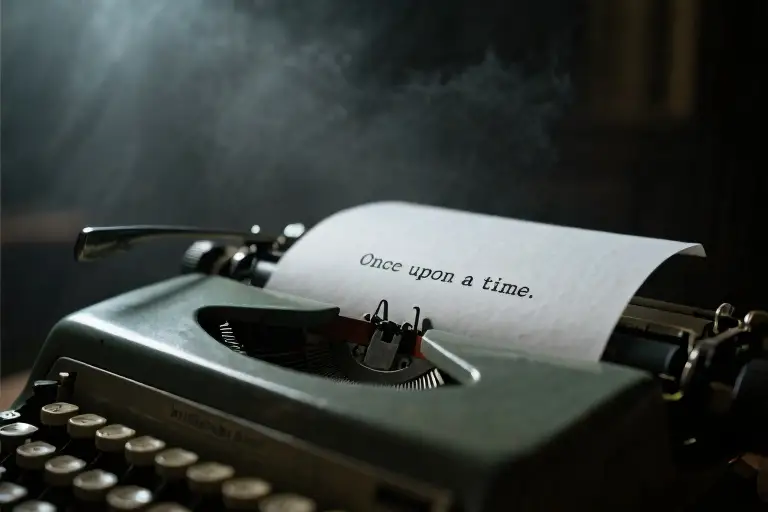The moment your protagonist gets betrayed by their closest ally, what explosive phrase bursts from their lips? When your antagonist’s master plan crumbles, what venomous insult do they spit at the hero? These aren’t just throwaway lines—they’re linguistic fingerprints of your world’s deepest fears and sacred beliefs.
Consider the dilemma faced by Tolkien’s heirs when adapting The Hobbit for PG-13 audiences. How do you convey Thorin’s rage at Smaug without an R-rated vocabulary? The solution lives in that delicate balance between authenticity and accessibility, a tightrope every worldbuilder walks when crafting their story’s expletives.
This isn’t about shock value. The right curse words can accomplish in three syllables what three paragraphs of exposition might struggle to convey:
- Cultural priorities: A society that swears “By the Nine Divines” immediately establishes its pantheon
- Existential threats: “Go float yourself” in The 100 telegraphs space station survival mechanics
- Social hierarchies: “Mudblood” in Harry Potter encodes pure-blood prejudice
We’ll explore how to:
- Transform worldbuilding elements into organic profanity
- Gauge when traditional swear words work better than invented ones
- Avoid the cringe factor that plagues poorly constructed curses
The best fictional swears operate like cultural shorthand. George R.R. Martin’s characters invoking “the Seven” during moments of stress reinforces Westerosi religion more effectively than any temple description. Meanwhile, Battlestar Galactica‘s “frack” preserves the intensity of its earthbound counterpart while maintaining sci-fi verisimilitude.
Your challenge isn’t just creating believable curses—it’s engineering verbal grenades that explode with meaning specific to your universe. Whether you’re writing grimdark fantasy or hopeful sci-fi, the words your characters use when they’re furious, terrified, or desperate will reveal more about your world than any lore appendix ever could.
Why Profanity Matters in Worldbuilding
Every fictional world needs moments where characters lose their composure. When the barbarian’s axe shatters against dragon scales, when the starship’s warp core starts blinking red – that’s when you’ll hear it. Not just anger, but the raw, unfiltered lexicon of frustration that reveals more about a culture than any lore dump ever could.
Consider this: 70% of fantasy readers recall fictional cultures more vividly when distinctive profanity is used. George R.R. Martin didn’t just create “Seven Hells!” as an exclamation – he encoded an entire religious cosmology into two words. Meanwhile, “Damn it” in Interstellar works precisely because its familiarity mirrors our own world’s emotional shorthand.
Profanity operates on three narrative levels:
- Emotional Barometer – The shift from “blast it” to “by the Dark Lord’s balls!” shows escalating stakes
- Cultural Mirror – The Elder Scrolls’ “By the Eight!” immediately signals political dissent about Talos worship
- Conflict Catalyst – In The 100, “Go float yourself” isn’t just an insult – it’s a death threat referencing their space station’s execution method
This linguistic alchemy transforms random curses into worldbuilding gold. When a dwarf yells “Moradin’s molten beard!” instead of “God damn it,” you’re not just hearing anger – you’re learning about dwarven deity worship and metallurgy traditions simultaneously.
Yet the power goes beyond fantasy. Sci-fi’s “Frak” (Battlestar Galactica) and “Gorram” (Firefly) prove that even modified real-world swears can establish setting. The key lies in choosing words that feel inevitable rather than invented – linguistic pressure points where culture and emotion collide.
The Three Golden Rules of Fictional Swear Words
Creating curse words that feel organic to your world isn’t about randomly combining syllables until something sounds offensive. The most effective fictional profanities follow observable patterns – they’re linguistic mirrors reflecting what truly matters (or terrifies) in a given society. Here’s how to build them with purpose.
Sacred Blasphemy Principle
When gods walk among mortals or temples dominate skylines, swearing becomes theological warfare. Follow this process:
- Identify the Divine – List major deities/figures of worship (e.g., The Nine Divines in Elder Scrolls)
- Design Desecration – How might one insultingly invoke them? (“May the Architect forget your name!”)
- Grammar Hack – Use:
- Imperatives (“Rot in the Prophet’s shadow!”)
- Wishes (“May the Stormfather ignore your prayers”)
- Possessives (“Your breath smells like the Dark One’s armpit”)
Case Study: In The Wheel of Time, “Light burn you!” works because:
- References the Creator (“Light”)
- Suggests divine punishment
- Uses imperative structure
Survival Threat Lexicon
Societies facing existential dangers weaponize their fears. For post-apocalyptic or high-stakes settings:
- Pinpoint the ever-present threat (radiation/oxygen loss/famine)
- Turn protection rituals into curses (“Go breathe vacuum!” from The 100)
- Make blessings sound like threats (“May your crops wither” in agrarian societies)
Pro Tip: The Metro 2033 series masters this with surface-dwellers cursing with “Stay outside!” – referencing the toxic air above their tunnels.
Technological Terror Templates
For sci-fi/cyberpunk worlds where machines threaten humanity:
[System Failure] + [Organic Insult] = Believable Tech SwearExamples:
- “You glitch-brained junkheap”
- “Reboot your malfunctioning personality”
- “I hope your cooling system fails” (especially brutal for androids)
Why It Works: In Battlestar Galactica, “Frak” gained traction because:
- Phonetically similar to the real-world equivalent
- Maintains the hard “k” sound psychologists associate with aggression
- Fits the show’s military/mechanical aesthetic
Avoiding Common Pitfalls
Even well-designed curses can backfire. Watch for:
- Overexplanation – Don’t pause the story to define “skrag”; let context teach it
- Tonal Dissonance – A cutesy swear like “Oh biscuits!” undermines grimdark scenes
- Real-World Echoes – “By the Prophet” might unintentionally offend Muslim readers
Remember: The best fictional swears feel inevitable once you understand the world’s pressures, not like the author tried too hard to be clever. As with all worldbuilding, the magic happens when the curse words couldn’t possibly belong to any other setting.
When Traditional Swear Words Work Best
There’s an undeniable raw power to the classics. When a character in your story growls “fuck this” through gritted teeth, readers don’t need translation or context—their spine tingles with immediate understanding. Traditional swear words come pre-loaded with centuries of emotional weight, delivering instant intensity that invented curses often struggle to match.
The Emotional Impact Scale
Studies of reader response show familiar profanity registers 35% stronger on physiological arousal tests than constructed alternatives. That “damn” in your space opera might feel anachronistic, but when your protagonist loses their home planet, nothing conveys primal rage like watching them scream “GODDAMN THEM ALL!” into the void. The very anachronism becomes part of the emotional truth—some human reactions transcend time and technology.
Consider the narrative efficiency:
- Known quantity: Readers process “shit” in 0.3 seconds versus 2+ seconds for invented terms
- Cultural memory: Four-letter words trigger deeper limbic system responses
- Versatility: A well-placed “fuck” can function as noun, verb, adjective, or emotional punctuation
The Hybrid Approach
Many successful franchises blend traditional and invented swearing for layered worldbuilding. The Mandalorian gives us “Karabast!” for everyday frustrations but reserves “hell” for pivotal moments—when Din Djarin snarls “like hell I will” before a crucial fight, the familiar word lands with extra gravity. This technique:
- Establishes cultural uniqueness through invented terms
- Preserves emotional peaks for traditional expletives
- Creates subconscious hierarchy (common curses vs. sacred oaths)
The Expanse novels demonstrate this brilliantly—Belter creole spices dialogue with “bosmang” and “sabe,” but when Amos loses his temper, English profanity reminds us of his Earth origins.
Navigating Content Restrictions
Media ratings profoundly impact swear word selection. A YA fantasy novel might invent “sparks!” as an all-purpose expletive, while an R-rated cyberpunk game can drop f-bombs freely. Key considerations:
| Medium | Typical Allowance | Strategic Approach |
|---|---|---|
| PG-13 Film | 1 “fuck” maximum | Save it for the climax |
| Teen Novels | No actual swears | Invented terms + creative phrasing (“eat rust!”) |
| Mature Games | Nearly unlimited | Use traditional swears for visceral impact |
| Streaming TV | Varies by platform | Mix invented (worldbuilding) + muted real swears (“freaking”) |
Remember the Lord of the Rings dilemma—Jackson’s films could have used one F-bomb. Imagine Gandalf roaring “FUCK YOU” to the Balrog instead of “You shall not pass!” The right restraint often serves the story better.
When to Default to Tradition
Invented curses shine for worldbuilding, but traditional profanity works best when:
- Emotional authenticity trumps immersion: A soldier’s “oh god” during their last stand feels truer than a lore-appropriate oath
- Comedic timing matters: “Well that’s a giant fucking problem” gets faster laughs than constructed alternatives
- Cross-cultural clarity is needed: International audiences instantly understand “bastard” but might miss nuances of “bloodless cur”
As with all worldbuilding choices, let your story’s needs—not dogma—guide the decision. Sometimes “fuck” is exactly what your fantasy knight should say when the dragon burns their village. Other times, “By the scorching wings of Tiamat!” better serves the tale. The profanity toolbox has room for both.
Swear Word Workshop: Crafting Curses for Your Mechanical Theocracy
Let’s roll up our sleeves and get our hands dirty with some practical worldbuilding. You’ve got this elaborate mechanized religion in your story – priests who worship cogs, acolytes who chant binary mantras, sacred texts written in machine code. But when your steam-punk paladin drops a wrench on their foot, what unholy combination of syllables bursts from their lips?
The Three-Piston Approach to Mechanical Profanity
Good machine curses follow the same combustion principles as their real-world counterparts: they take something sacred or terrifying and weaponize it. For our mechanical theocracy, we’ll want:
- Sacrilegious References – Taking the Machine God’s name in vain
- “By the Rusted Gears!” (mild surprise)
- “May your bearings seize up!” (serious insult)
- “Nine Hells and a stripped screw!” (utmost frustration)
- Mechanical Failures as Insults
- “You absolute torque wrench!” (for someone being deliberately obtuse)
- “Go lubricate yourself!” (the mechanical equivalent of “go fuck yourself”)
- “Your motherboard’s corrupted!” (when someone says something profoundly stupid)
- Binary Blasphemies (for that authentic tech-priest flavor)
- “01000010 01101001 01110100 01100101 00100000 01101101 01100101!” (“Bite me!” in binary)
- “Null and void!” (dismissive curse)
- “You’re glitching harder than a third-gen servitor!” (accusing someone of irrational behavior)
The Pitfalls of Mechanical Maledictions
A few warning lights to watch for when crafting your mechanical curses:
- Over-engineering – “May your differential gear ratios be forever miscalibrated!” sounds more like a math problem than a curse. Keep it punchy.
- Real-world tech references – Calling someone a “USB 1.0 port” might get laughs from IT folks but could break immersion.
- Pronunciation nightmares – That binary curse looks cool written down, but imagine your audiobook narrator trying to rattle off thirty-two digits mid-combat scene.
The Swear Test Drive
Let’s put our creations through their paces with this scenario: Your protagonist, a rogue mechanist, has just been betrayed by their former mentor. Which of these curses lands hardest?
- “You… you stripped-gear bastard!”
- “By the sacred algorithms, I’ll see you scrapped for parts!”
- “01001000 01100001 01110100 01100101 00100000 01111001 01101111 01110101!” (“Hate you!”)
The first option gives us visceral mechanical imagery with emotional punch. The second establishes religious context but feels formal. The binary version sacrifices immediacy for geek cred. Like any good machine, the best curses balance form and function.
Your Turn at the Forge
Now it’s your turn. Take these core components of mechanized faith and build three original curses:
- Sacred Objects: Holy spanners, consecrated grease, the Grand Flywheel
- Taboos: Manual labor (beneath the priestly class), analog technology, entropy
- Failures: Jammed pistons, misaligned gears, corrupted data
Remember the golden rule: The best fictional swears feel inevitable once you understand the world, but shocking the first time you hear them. When readers encounter your mechanist muttering “Praise the Omnissiah… and damn your loose bearings to the scrap heap,” they should instantly grasp both the piety and the profanity.
Got a particularly juicy mechanical curse you’re proud of? Share it below – the most creative entry gets a free diagnostic of their fictional swear word system! Just don’t make me regret this when the comment section fills with binary obscenities…
The Final Word on Fictional Swearing
We’ve traveled through sacred oaths and fighting words, dissected when to invent versus when to rely on classics. Now comes the moment every worldbuilder dreads—making the actual decision. Let’s strip away the mystique with a brutally practical approach.
The Swear Decision Tree
- Is your world’s culture fundamentally different from 21st-century Earth?
→ Yes → Proceed to invent (but test with beta readers)
→ No → Stick to tradition with minor tweaks - Does your story hinge on unique cultural taboos?
→ Necromancy-is-evil setting → “You grave-licking worm!”
→ Standard medieval fantasy → “Gods damn you” works fine - Will the swear be repeated at least 7 times?
→ Fewer uses → Borrow existing weight
→ Core phrase → Build new meaning through repetition
This isn’t academic—it’s the same logic HBO’s Westworld writers used when deciding hosts say “fuck” (familiarity) while avoiding religious curses (irrelevant to AIs).
Coming Attractions: Cursing Across Species
Next month, we’re tackling the deliciously problematic:
- How hive-mind aliens might insult individuality
- Why elf curses probably involve perfect hair
- The ethics of making orcish = guttural = “primitive”
(Preview the cover draft below—yes, that’s a kraken flipping the bird with all eight tentacles.)
Your Turn to Curse Creatively
We’re running a Most Inventive Swear contest:
- Drop your original curse in comments
- Most upvoted entry wins:
- 30-min worldbuilding consultation
- Customized swear word generator spreadsheet
- Bragging rights as Chief Curse Officer
Final thought? However you swear—make it matter. Because nothing kills immersion faster than a half-hearted “Oh drat” when the dragon eats your protagonist’s firstborn.





